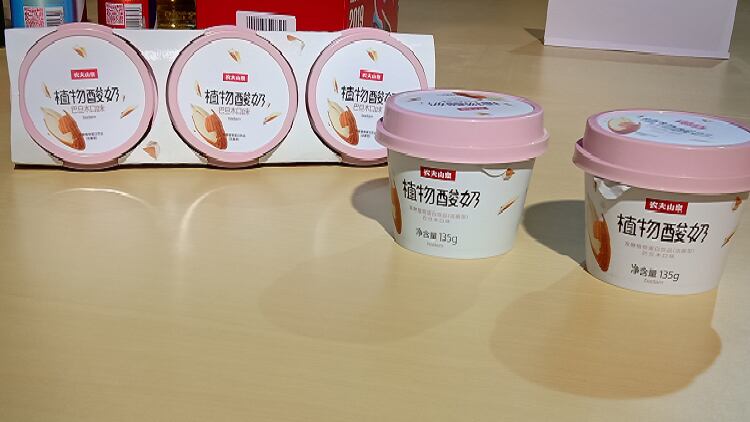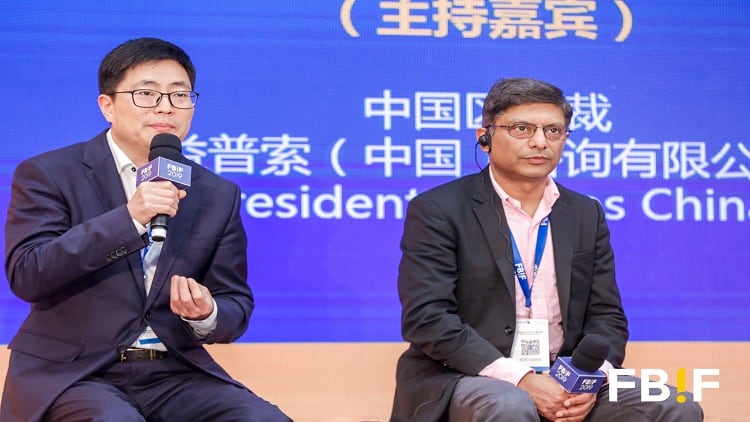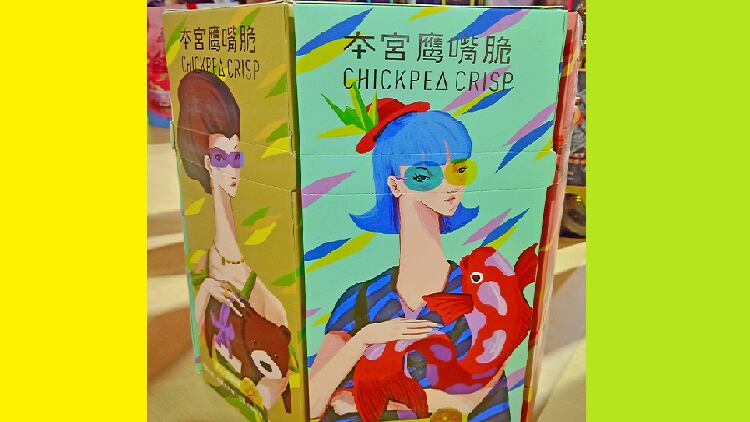The Chinese mineral water giant starting to sell its first ever plant-based yogurt last month, after spending three years experimenting over 1,000 different formulations.
Made from non-GMO soy beans, the yogurt comes in three flavours - almond, coconut, and walnut.
Although it is being touted as a healthier choice that contains more protein (4g per serving) than animal-based yogurt, the firm had faced doubts from retailers when it came to the retail price.
One reason was because the Chinese market lacked understanding and appreciation for plant-based dairy, said Dr Zhou Li, the VP and Secretary of the Board at Nongfu Spring.
He was addressing the topic on the internationalisation of Chinese food and beverage brands when speaking at a panel discussion at the Food and Beverage Innovation Forum held in Hangzhou recently.
“When establishing a brand, the more important thing is to do is to place the product into the minds of the consumers. Actually, this is a very difficult thing to do, not only on the international scale, but within a country as well. Sufficient patience is needed (to achieve the end-results).”
He explained his point with the example of the firm’s plant-based yogurt launch.
He said that ingredients from all over the world were used to make the yogurt: soy beans from North-Eastern China, walnut from Xinjiang, almond from US California, coconut from Indonesia, fermentation strains from France and Denmark, and manufacturing facilities from Germany were used as well.
The retail price was eventually settled at RMB$9.90 (US$1.47) per cup. Each cup weighs 135g.
However, being more expensive than most of the conventional yogurt, Dr Zhou said that he was often confronted with the question: “Why is your plant-based yogurt more expensive than animal-based yogurt?”
Should plant-based dairy be cheaper?
It turns out that the Chinese generally perceive that animal food sources should be more expensive than plant-based sources.
“In China, the general perception is that meat, egg and milk should be more expensive while vegetables should be cheaper.
“However, in other parts of the world, the retail price of all plant-based yogurt are usually higher than traditional yogurts made from animal dairy sources. This is because the manufacturing process (in making plant-based yogurt) is highly difficult,” Dr Zhou said.
Overseas consumers also appreciate plant-based yogurt for its low carbon footprint, environment friendliness and health benefits. Chinese consumers, on the other hand, are not persuaded by these benefits.
“We will only tell them that our plant-based yogurt is zero in cholesterol, has lesser amount of saturated fats and is good for their health.
He therefore said that winning the hearts and minds of the consumers was a very difficult task and was something that firms should always address.
Chinese culture
On the other hand, the appeal of Chinese brands would depend on people’s perception of Chinese culture, according to Dr Zhou.
He said that at present, Chinese brands lacked international recognition although the manufacturing capabilities of Chinese companies were on par with the MNCs.
This could be because China’s culture is not yet considered attractive as compared to other cultures, he explained.
He believes that the day when Chinese brands rise up is the day when China’s culture is deem as “attractive instead of something that people are interested in (merely) out of curiosity.”
“Why are our brands lagging behind others in the international stage? Actually, we could refer to the university rankings…Frankly, the world’s university rankings are still dominated by the American, European, and Japanese universities.
“One day, if the Chinese universities become highly sought after and is where everyone can gain knowledge and wisdom, I believe that is the day when people are attracted to our culture…By then, the internationalisation of China’s brands would progress by leaps and bounds.”





